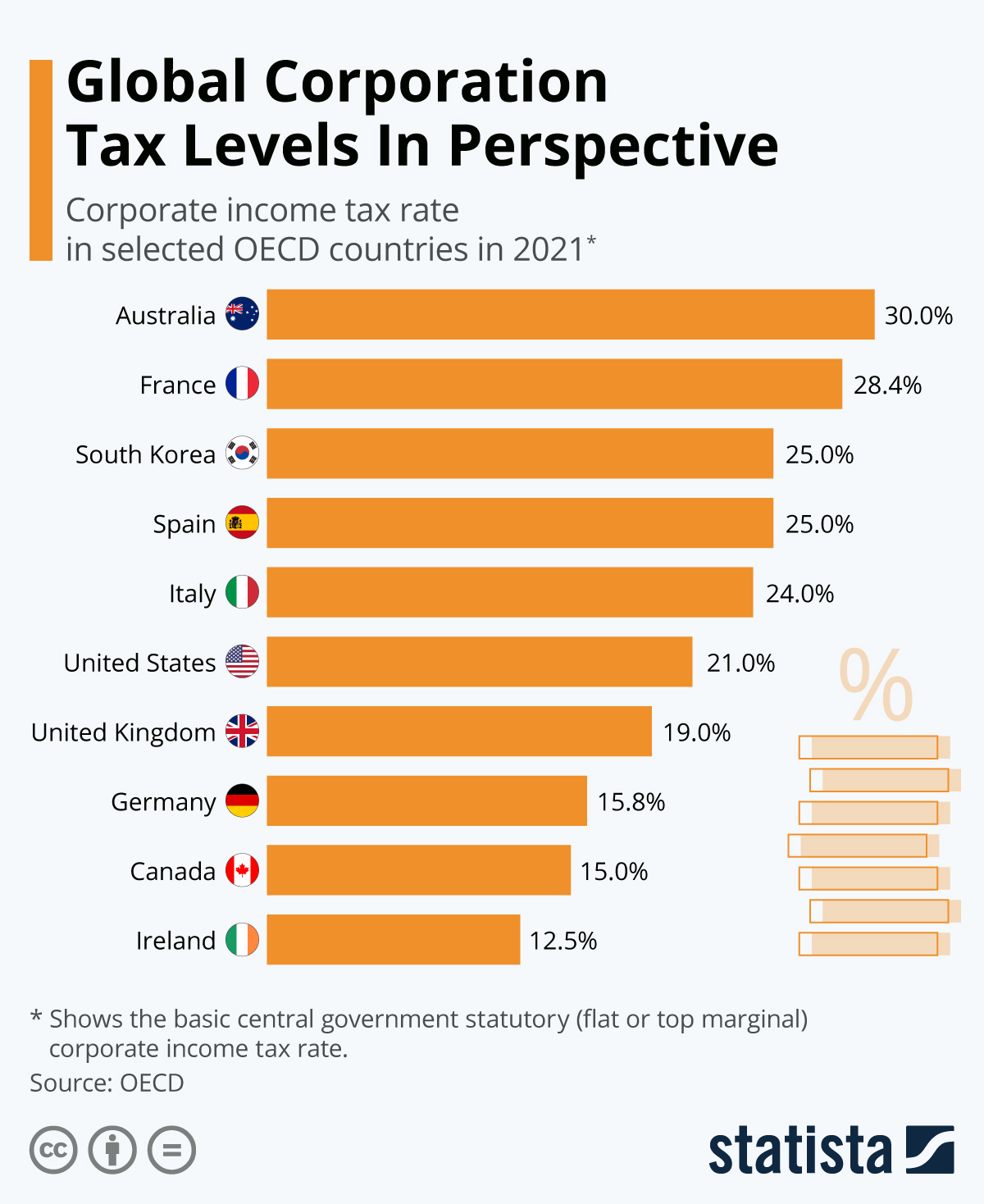Since the turn of this century, OECD countries have experienced a marked trend of declining corporate tax rates.
The average corporate income tax rate applied by OECD members fell from about 33 percent in 2000 to between 24 and 25 percent in recent years (24.2 in 2025).
As Statista's Tristan Gaudiant details below, using the organization's data, France maintains the highest combined corporate tax rate in the OECD, at 36.1 percent in 2025, followed by Colombia (35 percent), while the lowest marginal corporate tax rate is found in Hungary, at 9 percent, followed by Ireland (12.5 percent).
You will find more infographics at Statista
In 2021, a major international agreement was reached under the guidance of the OECD to establish a minimum corporate tax rate of 15 percent on the profits of multinational companies, aimed at reducing tax inequalities and preventing profit shifting to low-tax territories.
Since then, many jurisdictions have taken steps towards the implementation of these rules into their domestic law, with the global minimum tax starting to apply from the beginning of 2024, although two countries (Hungary and Ireland) are yet to meet this requirement.
The challenge for OECD countries remains to strike a balance between economic attractiveness and tax fairness, while minimizing competitive distortions.
Advocates of low tax rates argue that they attract foreign investment and boost competitiveness, whereas critics point out that such rates can reduce useful public revenue (public services, social policies funding) and exacerbate inequality, particularly when large corporations benefit from preferential regime and aggressive tax optimization.
Loading recommendations...
